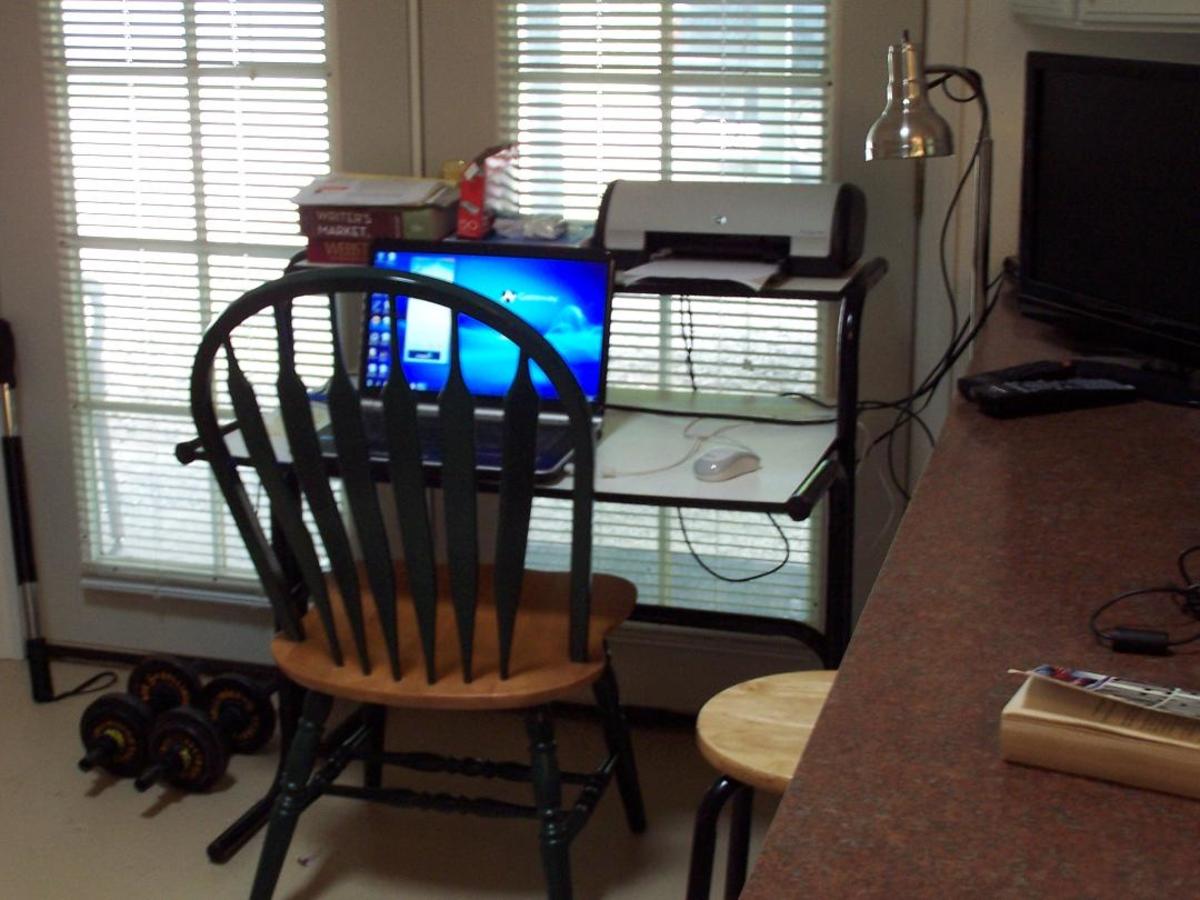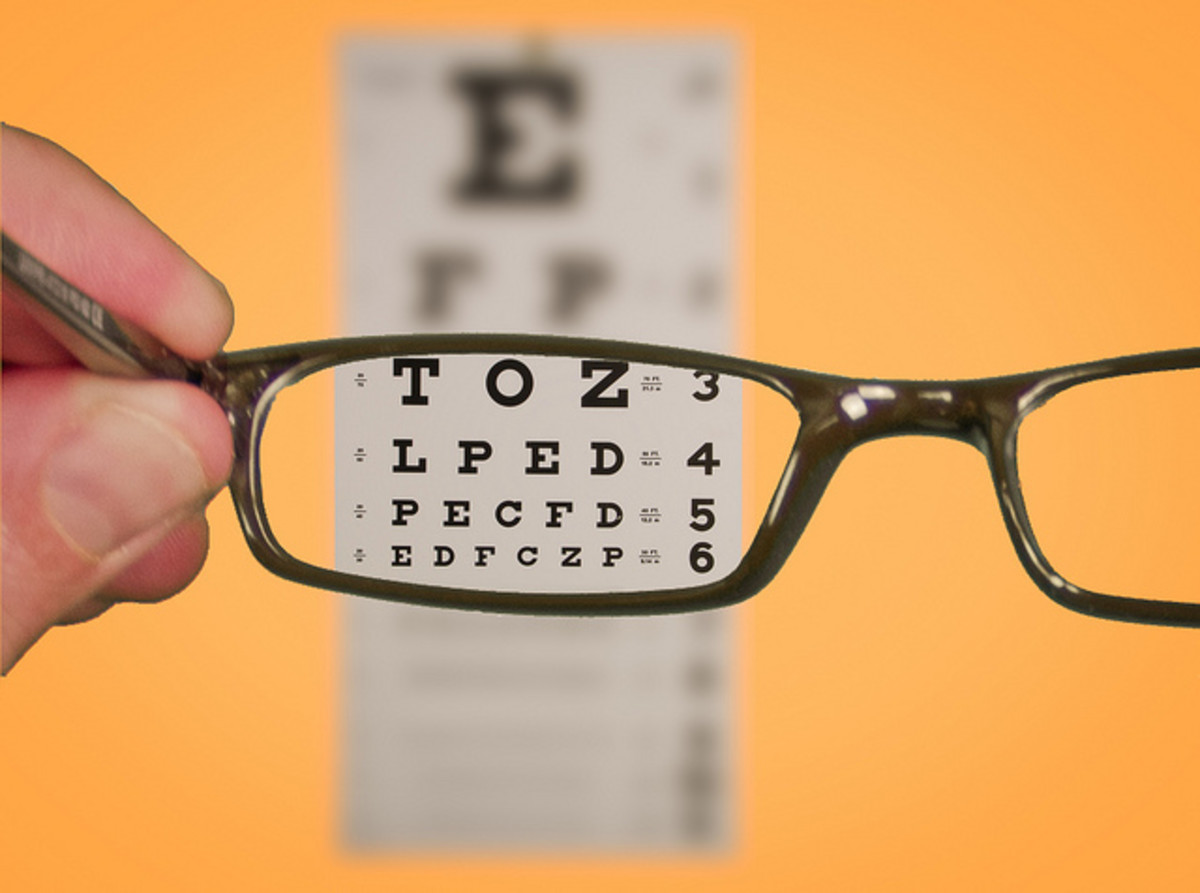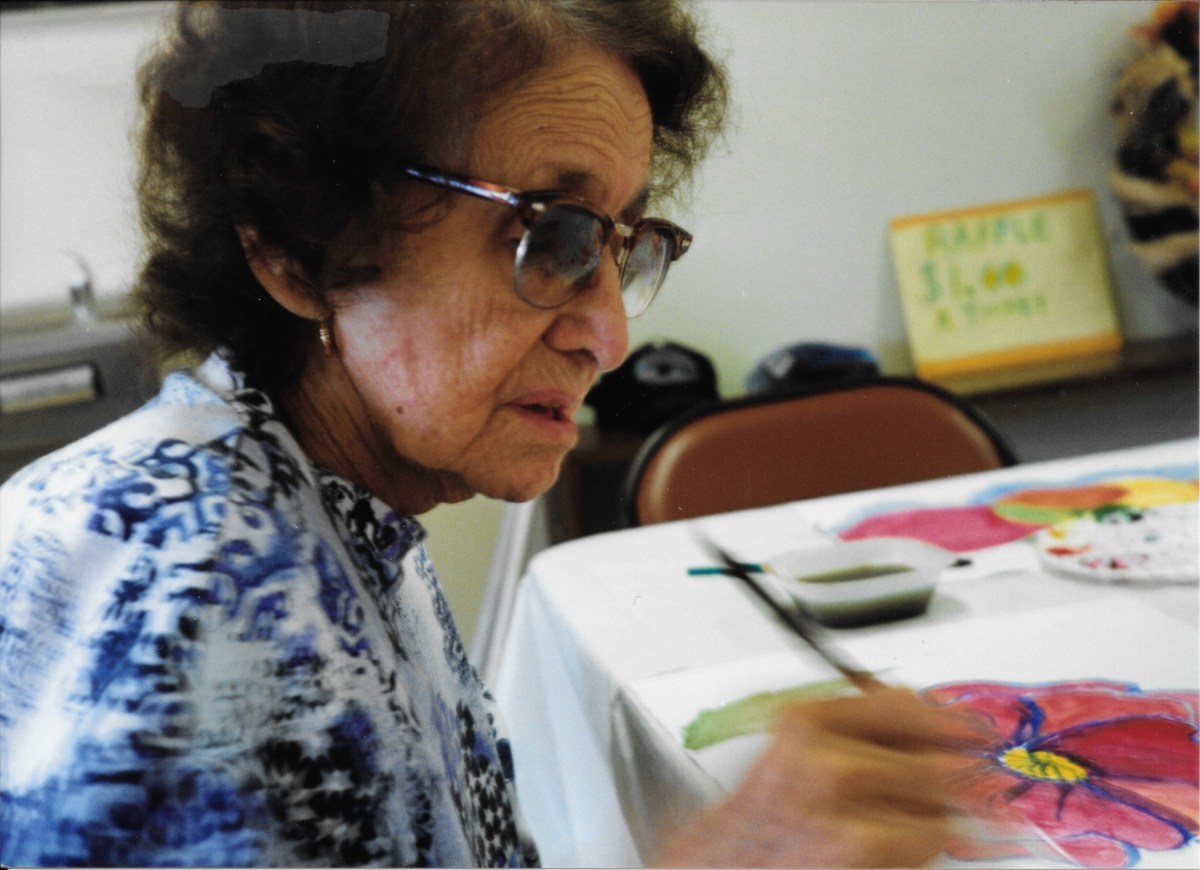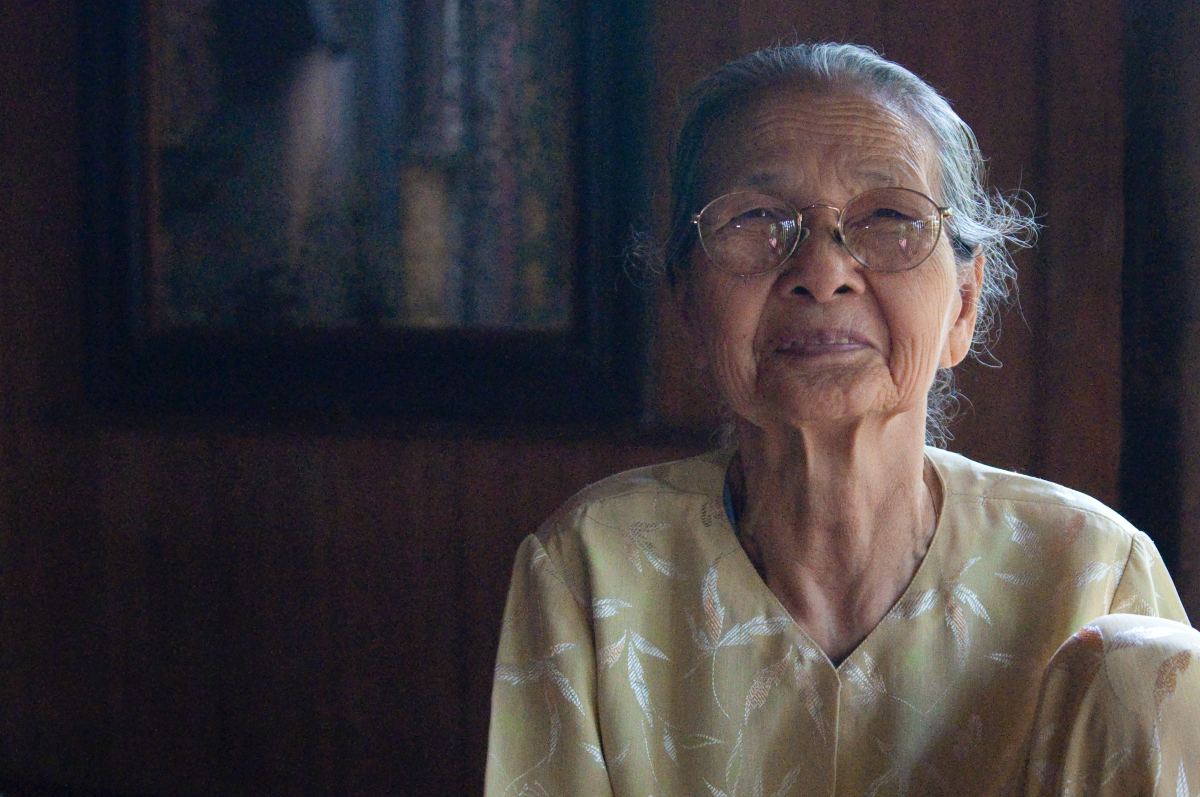Macular Degeneration: Living with the Challenges of Low Vision

We take so much for granted, don't we"? When we are young and healthy, we go through life without much thought of what it takes to just get by. Most of us get up every morning, go to work, run an errand or two, and spend the evening with family or friends. We rarely think about the details of those things. We simply do them without concern for when or how we do them. But then, life happens and all those routine things are anything but routine.
When my eyesight began to fade from age related macular degeneration (AMD), reading was the first real challenge I faced. I had barely adjusted to the loss when the next appeared, then the next, and the next. For a while my life felt like someone set off a chain reaction of challenges, Life felt like someone stacked the dominoes too close together and gave the first one a nudge. I had taken my vision for granted and was about to discover how much of my life was dependent on my ability to see.
What are the challenges?
Reading is a challenge
As an avid reader, I also loved the experience of holding a book in my hands. Trips to the library were part of my routine. I loved running my hands along the shelves until a book spoke to me or jumped off the shelf at me. I cried all the way home the first time I discovered that I could no longer read the titles or the names of authors on the library shelves.
As I prepared myself for living as a person with low vision, I knew there were options available that would allow me to keep up with my favorite authors and to broaden my horizons through books. Digital or audio books however would never provide the same feeling so I had no interest in them. I would find other things to do, I thought.
It has been over a year now since I was able to read a printed book and I have finally accepted that I can't live without books. As a result, I have looked at the options available. For anyone who can no longer see well enough to read, the following two resources can open the world of books to you again.
Reading Resources
- National Library Service for the Blind and Physicalloy Handicapped
The home page of the National Library Service for the Blind and Physically Handicapped (NLS), U.S. Library of Congress. NLS administers a free library program of braille and recorded materials circulated to eligible borrowers. - Audible, try it free - 30 day audiobooks free trial from Audible | Audible.com
Download audiobooks to your iPhone, Android, Windows Phone, Kindle or other listening device. Listen to Audible audiobooks by best-selling authors anytime, anywhere.
National Library Service for the Blind and Physically Handicapped (NLS):
Offered through the Library of Congress. NLS provides a lending library at no charge for both audio and Braille books. They also provide equipment for listening to audio books and, free shipping.
Audible.com:
An internet service that is affiliated with Amazon to provide audio books for a monthly subscription fee. Many of the books are author narrated. Books can be downloaded to your computer or an e-reader such as Kindle. Credits are also earned that can be applied to digital books on Amazon.
Local Library:
Visit your local library and ask about audio books. Most have a good selection of audio books available.
- Amazon.com: Prime Pantry - Food, Snacks, Household Supplies, Personal Care, Pet Food
Shop on Amazon.com for low-priced everyday essentials - breakfast, snacks, cooking, beverages, personal care, cleaning, pet food, health, nutrition.
Shopping is a challenge
As my AMD progressed, other things became more difficult. My mother's birthday loomed on the horizon and I ventured out alone to shop for a gift. Mom has always been a sharp fashionista so I went in search of a new outfit. After several hours of sheer frustration, I returned home empty handed. I had never really enjoyed shopping but to discover that I could not longer read labels to determine sizes or prices was devastating.
I now do m most of my gift shopping on the computer. It;s not ideal but it is a suitable alternative. As a member of Amazon Prime Pantry I can buy many of my staple food and household items and have them delivered in two days for minimal shipping costs, A local delivery service takes my grocery list and does the shopping for perishables and produce and delivers them them for a reasonable fee. I discovered there are hidden benefits to my shopping challenge. The many options and promotions offered by the retail chains are no longer a temptation and my budget is reaping the reward. My grocery bill has been cut by at least 25%.
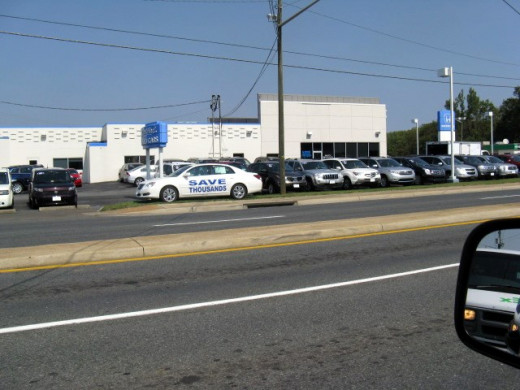
Driving is a challenge
A few days after my failed shopping trip, it occurred to me that if I couldn't read to shop, I surely had no business driving. While teaching me to drive, my Dad had impressed on me the responsibility of commanding a vehicle. I remember him saying that in the wrong hands, a car was no less a weapon than a loaded gun. Having driven for over 45 years, I had taken that responsibility seriously. My driving record spoke for itself. I had one accident when I was 17 years old and it taught me a powerful lesson. I had never hurt anyone and I didn't want to start now. I had to consider giving up the privilege of driving. This would be the hardest decision of all.
It didn't happen immediately. Oh no, I could not just stop driving completely. I was far too independent to make that decision. But, I could limit my driving and still be responsible. Over the next year or so I gave great thought to where I would drive and what route I would take. Living in the heart of town made that pretty easy. The grocery store was only a mile away from home and my bank was only four blocks away. There was a drug store six blocks away and my primary care physician was in the same area. I vowed to give up driving for all but those things that were vital to remain independent. I began to accept that for everything else I would rely on friends family, or, public transportation. Nothing could have prepared me for how hard that would be.
When you are not visually challenged, it's easy to tell someone else how to function with low vision. Friends and family offer to take you anywhere you need to go. They tell you to call them if you need anything. Their offers are genuine and well meaning but there is another reality to living with low vision. Your schedule doesn't always coincide with the schedules of your friends and family. So, in addition to dealing with the changes of limited vision, there are the challenges of scheduling, being disappointed, or, of getting stranded. I'll share some examples to help you understand.
Scheduling is a challenge
Not so long ago I needed to take my dog to the veterinarian. First, I had to determine when the vet had an appointment available. Once that was done, the next challenge was to find someone available to take me. I am blessed to have many friends willing to provide transportation but many of them live outside the city in nearby counties. I began my search by contacting friends who live here in the city. None were available for the date and time the veterinarian had open. I expanded my requests to those who lived further away. I had no luck there either so I called the office again to request another date and time. After more than two dozen phone calls, the appointment was confirmed and transportation arranged. It had taken the better part of an entire day to make one appointment.
Emotions are a challenge
When you are dependent on others for transportation, you have to prepare yourself to be disappointed sometimes. You know the old adage about "the best laid plans"? Well, it's true. All the planning in the world doesn't prevent the unexpected to occur. When you give up driving, you soon realize those things you took for granted. I never realized how often I ran out to pick up dinner simply because I was hungry for something other than what I could prepare at home. Okay, I'll admit that I am spoiled. I want what I want and I want it now, not a week from now. As a non-driving person, I've learned to wait. I wait for friends to invite me to lunch to satisfy those cravings for the oriental buffet or the chili rellenos from my favorite Mexican restaurant. And yes, I am always disappointed when they cancel at the last minute and tell me we'll do it again soon. I' learning to live with that too.
If I'm going to talk about the emotions, I must also tell you about feeling alone or, scared. Being alone never bothered me. As a person who can spend hours contemplating the universe, I have always welcomed quiet times. Even as a child I enjoyed spending time alone and never had trouble entertaining myself. That's the problem when you live with low vision. Your options for entertaining yourself change and can actually become quite limited until you accept your situation and decide to change it.
When doing the simplest things became hard for me, I began to isolate myself. It took several months for me to realize that I had become somewhat paralyzed by the fear of failure. I was afraid of going out and being confronted with something I could no longer do. I was afraid of having to ask for help. I was afraid to be in a crowd and not be able to differentiate between friends and strangers. One day it occurred to me that I no longer recognized the voice inside me. The once familiar voice that faced a challenge and screamed "just watch me" was now a weak whisper of "I can't" or "I'm afraid".
It doesn't have to be like that but it takes time and a bit of determination. First, you have to be honest with yourself. You have to give yourself permission to grieve your loss of vision and then to get angry. These are normal emotions and they will pass. Once they do, you will begin to see challenges as opportunities to learn a new way. You will soon discover that a new way can be a good thing and that if you embrace it, you will not be alone or afraid anymore.
If I have learned anything at all it is that every emotion is an important element to learning to live with low vision. Feel them, share them, and never, ever be ashamed of them.
Maintaining control is a challenge
Most of us want to think we are in control of what happens to us or around us. In truth, most of us fool ourselves into thinking we have more control than we actually have. When AMD robs you of your vision, you learn quickly that there are some things you can control and many more that you can't. You learn to let go of the things you can't control and fight harder for those you can.
At 60 years old, I have a reputation for not wanting to ride with anyone else. I like being the driver because it gives me control over the situation. I can leave when I want to leave. The loss of vision gives new meaning to being a control freak and after a recent experience, I may be worse than I ever was.
A personal story about losing control
A few weeks ago a close family member was hospitalized and I needed to be there to oversee their care. A friend offered to take me to the hospital and drop me off on their way to an appointment. Since the hospital is less than a mile from my home, I knew I could get a taxi for my return trip home. Little did I know.
When I was ready to come home, I phoned each of the three taxi services in town only to be told to call another one. Each of them said it would be hours before they had a taxi available and I would have better luck calling another company. For the first time in my adult life, I was stranded. It took a while for me to realize that the distance between me and home was so short that none of the taxi's felt it would be financially worth tying up a car.
I'll be honest. Of course there were other options and I considered them all.
- I could wait for a bus that would let me off on the side of a busy thoroughfare and force me to cross four lanes of oncoming traffic.
- I could walk the short distance. I am not totally blind but because of my low vision, I have no depth perception. Walking along the shoulder of a busy road when you cannot judge the distance between you and oncoming traffic is dangerous. My low vision affects my ability to detect neural colors such as taupe or gray. Cars of those colors are invisible to me unless I detect their movement and even then I cannot judge the distance between them and me. This too was dangerous as I would have to cross a busy street.
- Or, I could start calling my list of friends and hope that someone was available to pick me up. I hate calling friends on the spur of the moment. To be honest, I just plain hate to ask friends.
As I sat in the lobby stressing over my situation, my phone rang. When I answered, I heard the familiar voice of a friend say "What are you up to?". I shared my situation and my frustration to them and they immediately volunteered to give me a ride.
Once I was home again, I realized that my anxiety had solved nothing. The situation was nothing more than one more challenge to be overcome. The experience was an opportunity to learn to do things differently. It was a lesson in learning to ask for help.
The bottom line
I won't lie and tell you that life with progressive macular degeneration is easy. It isn't easy but as I am learning, others have been here before me They have met the challenges and learned to overcome them. There are resources available to help with even the most mundane tasks. We simply have to be willing to change a bit. For every problem there is a solution. Ask for help. Find a support group. Network with others on the Internet. Reach out to civic organizations that help the blind or visually challenged. Help is available but first we have to admit that we need it.
Additional Resources
- Ronda Del Boccio | Low Vision Hijinx!
Read all of the posts by Ronda Del Boccio on Low Vision Hijinx! - Adaptive Technology for Independent Living in the Denver Metro of Colorado
Beyond Sight provides low vision and blind people with adaptive technology products to increase independence and quality of life. - Visual Aids for Macular Degeneration - Aids to Keep You Independent
Best Visual Aids for Macular Degeneration - Solutions for Solving Frustration from Vision Loss - Macular Degeneration Community
A facebook community for those living with macular degeneration.
© 2015 Linda Crist





